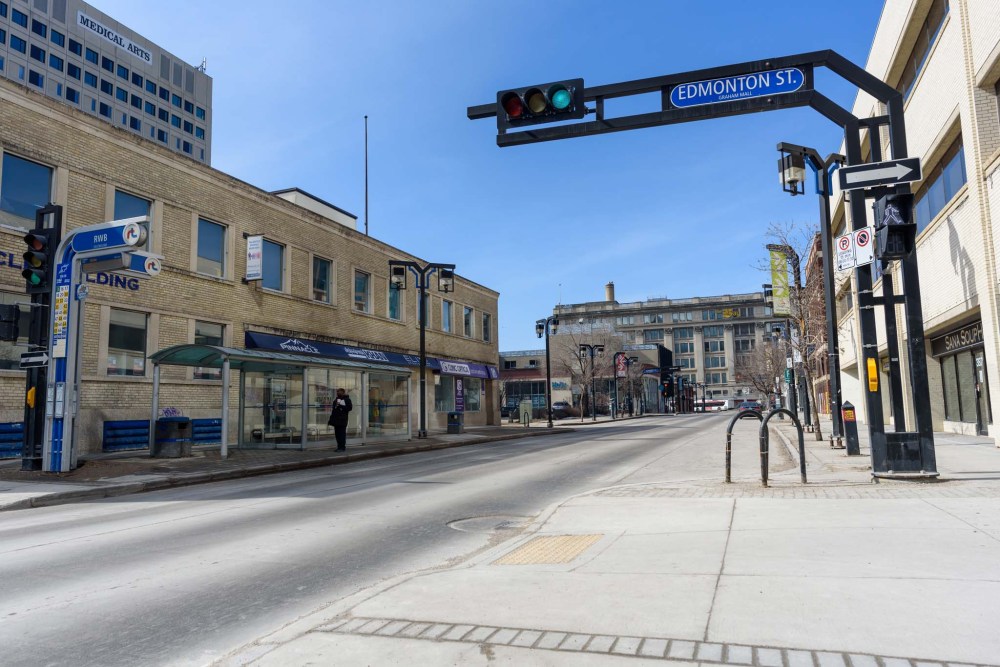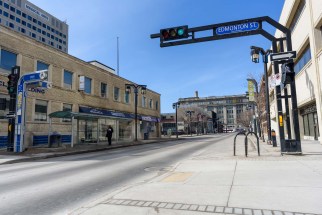Passing grade, but it’s only mid-term
Read this article for free:
or
Already have an account? Log in here »
To continue reading, please subscribe:
Monthly Digital Subscription
$0 for the first 4 weeks*
- Enjoy unlimited reading on winnipegfreepress.com
- Read the E-Edition, our digital replica newspaper
- Access News Break, our award-winning app
- Play interactive puzzles
*No charge for 4 weeks then price increases to the regular rate of $19.00 plus GST every four weeks. Offer available to new and qualified returning subscribers only. Cancel any time.
Monthly Digital Subscription
$4.75/week*
- Enjoy unlimited reading on winnipegfreepress.com
- Read the E-Edition, our digital replica newspaper
- Access News Break, our award-winning app
- Play interactive puzzles
*Billed as $19 plus GST every four weeks. Cancel any time.
To continue reading, please subscribe:
Add Free Press access to your Brandon Sun subscription for only an additional
$1 for the first 4 weeks*
*Your next subscription payment will increase by $1.00 and you will be charged $16.99 plus GST for four weeks. After four weeks, your payment will increase to $23.99 plus GST every four weeks.
Read unlimited articles for free today:
or
Already have an account? Log in here »
Hey there, time traveller!
This article was published 28/04/2020 (2052 days ago), so information in it may no longer be current.
It’s customary for students to receive mid-term marks that indicate whether they’re on their way to achieving the semester’s academic goals. If the Manitoba public was given a mid-term grade for pandemic work thus far, it would likely be a qualified A.
Our rate of COVID-19 cases is among the lowest in Canada at 19 per 100,000 people. By comparison, Quebec has 273, Ontario has 101 and Alberta has 96.
Long-term care facilities have been the site of nearly half of all COVID-19 deaths in Canada. But in Manitoba, preventative measures by such institutions, as well as no small measure of good fortune, have prevented the clusters of death that racked care facilities in other provinces.
The goal of “flattening the curve” was to keep Manitoba hospitals from being overrun with COVID-19 patients. So far, so good. The caseload has been manageable and, in fact, Manitoba’s health system now has capacity to resume some elective surgeries unrelated to the pandemic.
With cautious optimism, Manitoba officials are even talking about some economic reopenings, such as hair salons and golf courses, within the coming weeks.
When handing out mid-term report cards, it’s important to note the high mark accorded the public is separate from the decidedly lower grade many people are giving the Pallister government, which has been roundly criticized for a pandemic response offering too much cost cutting and not enough financial supports for shutdown victims, including businesses.
But in spite of disputable political decisions, perhaps Manitobans can be allowed a thumbs-up to each other — while keeping two metres apart — to recognize the general public is doing a good job of obeying the unprecedented orders to suspend public activities and many of our legal rights. And our acquiescence is having the desired result.
In assessing the success of Manitoba’s effort to minimize the pandemic’s impact, it must be acknowledged we can’t take credit for two significant advantages: our geographical isolation, which means we had relatively few travellers carrying the virus into Manitoba during the important initial stages; and the advance warning and hard lessons provided by other places around the world that battled the novel coronavirus weeks before it arrived in Manitoba.
There is a third factor, however, for which Manitobans deserve credit: the willingness to surrender individual privileges to what sociologists call “the greater good.” Early acceptance of personal hardships for the larger benefit of Manitoba is among the reasons why the virus hasn’t ravaged this province as badly as it has devastated other places.

To understand what can happen when people won’t act for the greater good during a public health emergency, an example is as close as Canada’s southern neighbour. The COVID-19 deaths-per-capita total in the U.S. is about three times that of Canada, and it’s expected to soar more as some states ignore the advice of public-health experts and allow group activities to resume.
America’s passion for celebrating individual freedom could create a fertile field for a virus that flourishes when potential human hosts ignore public-health warnings. Masked protesters marching en masse against stay-at-home orders in various U.S. states are endangering themselves, which may be their right, but the reality is that they’re also endangering others, including medical staff.
In contrast, the past six weeks have shown Manitobans are willing to radically change their behaviour to help all of us keep healthy. When it comes to the greater good, we’re good with that.
History
Updated on Tuesday, April 28, 2020 10:30 PM CDT: Fixes typo.









